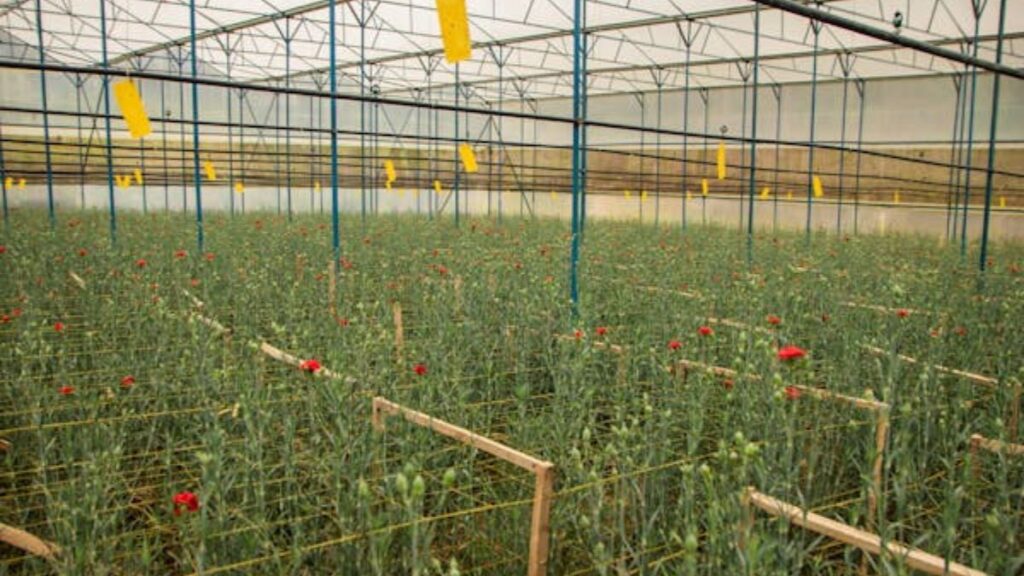The farming industry is transforming significantly, primarily driven by technological innovations and resource management. One of the most impactful advancements has been the rise of commercial greenhouses. These structures are changing how produce is grown, allowing for increased efficiency and sustainability. Commercial greenhouses enable farmers to optimize plant health and productivity year-round by providing controlled growing environments. This cultivation method is becoming especially vital as traditional farming faces climate variability and urban encroachment challenges. As these issues escalate, there is a growing recognition of greenhouses’ critical role in future agricultural practices.
Understanding Commercial Greenhouses
Commercial greenhouses are specialized structures designed to facilitate plant growth in a controlled environment. Their primary function is to protect plants from extreme weather conditions, pests, and diseases. They utilize technologies like heating, cooling, and irrigation systems to ensure that plants receive ideal conditions for growth throughout the year.
The ability to grow various crops in a compact area makes commercial greenhouses attractive for businesses looking to diversify their offerings. Consequently, investing in commercial greenhouses for businesses can yield significant returns by tapping into the rising demand for fresh and locally sourced produce. The economic potential of these greenhouses is immense, as they allow for consistent crop production any time of year, irrespective of external environmental factors. This consistency helps cultivate a reliable supply chain, which is crucial for maintaining market demand.
Benefits of Greenhouse Farming
The multiple benefits associated with greenhouse farming contribute to its popularity among modern agricultural practices. One of the foremost advantages is the enhanced control over environmental conditions, leading to higher yields and better-quality produce. Additionally, by extending the growing season, greenhouses provide opportunities to cultivate crops that may otherwise not survive in a given climate. They also enable advanced cultivation techniques, including hydroponics and aeroponics, further maximizing space and resource efficiency.
Reduced water usage is another significant benefit, as greenhouses allow for more efficient irrigation systems that minimize waste. Sustainability is another compelling factor, with many greenhouses integrating renewable energy sources to power their operations. Such innovations lower operational costs and appeal to the increasing consumer demand for environmentally friendly farming practices.
Challenges Facing Commercial Greenhouses
Despite the advantages that commercial greenhouses provide, operators face several challenges. High initial capital investment for setup and technology can be a barrier for new entrants into the industry. Additionally, skilled labor is required to manage these technologically advanced systems, which can further inflate operational costs. Energy consumption is also a concern, especially if greenhouses lack energy-efficient systems.
Furthermore, pests and diseases can still pose significant threats, making operators need to invest in comprehensive management strategies. Even with advanced systems in place, the reliance on technology can be a double-edged sword; system failures can lead to significant crop losses. Navigating these challenges requires careful planning and a commitment to ongoing learning within the greenhouse entrepreneurship community.
The Future of Commercial Greenhouses
As awareness grows regarding sustainable farming practices’ benefits, commercial greenhouses’ future looks promising. Innovations in greenhouse technology will likely continue, addressing current limitations while enhancing operational efficiencies. Incorporating renewable energy technologies will become increasingly common, reducing the carbon footprint of greenhouse operations. Vertical farming methods within greenhouses may also gain traction, further optimizing space and resource use.
Collaboration among agricultural scientists, engineers, and entrepreneurs can yield exciting new developments that enhance profitability and sustainability in greenhouse farming. Additionally, market trends suggest a growing consumer preference for locally sourced produce, positioning commercial greenhouses as critical players in meeting this demand. As a result, these structures will likely play an essential role in developing resilient food systems worldwide.
- Technological Advancements in Greenhouse Design
Greenhouse design has evolved dramatically over the years due to technological advancements. Modern greenhouses incorporate automatic ventilation, temperature controls, and energy-efficient lighting systems. These technological enhancements allow farmers to create optimal conditions for plant growth and monitor them remotely. Innovative materials, like advanced plastics and glass, are being utilized to maximize light penetration while protecting plants from harmful UV rays. Some commercial greenhouses embrace innovative technology with IoT devices to gather and analyze real-time data. Sensors can track humidity, soil moisture, and temperature, providing insights that improve overall management strategies. This level of sophistication makes it easier for growers to make data-driven decisions, leading to increased crop yields and reduced operational costs.
The rise of commercial greenhouses is reshaping the agricultural industry. Their ability to provide a controlled environment for year-round crop production greatly enhances food security and supply chain stability. While challenges remain, the benefits of incorporating advanced technologies and sustainable practices in greenhouse operations cannot be overstated. The future holds great potential for further innovations that will solidify the role of commercial greenhouses in feeding our growing population. As this sector evolves, it will undoubtedly influence modern farming practices and contribute significantly to sustainable agriculture.







